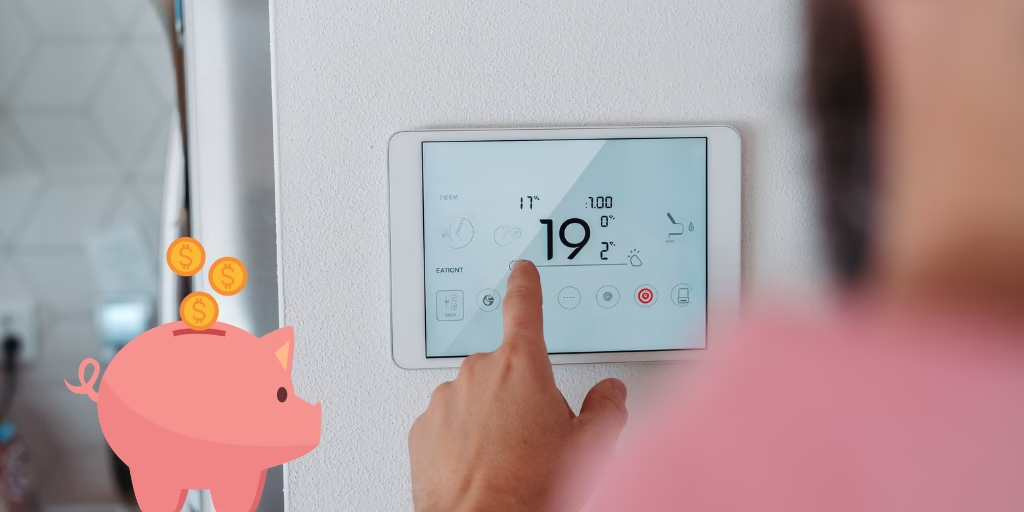Can Smart Home Heating Really Save Money
Smart heating systems are often marketed as money saving upgrades, but it can take a long time before you recoup all the costs of smart home heating system.
What Is Smart Heating
Smart heating refers to smart thermostats, smart radiator valves, and controllers that can be programmed, automated, and controlled remotely, often through a smartphone app or a voice assistant.
Popular smart heating system brands include Nest, Hive, Tado, Moes, Drayton Wiser, and Honeywell Evohome
These systems typically offer:
- App based control
- Learning algorithms \ AI learning or schedules
- Room by room ‘zoning’ (with smart radiator valves)
- Presence detection (geofencing)
- Open window detection
- Weather based adjustments
Can Smart Heating Save You Money
Smart heating systems can reduce your energy bills by making your heating more efficient. However, it will require careful configuration. Don’t expect to suddenly make huge savings over night
Common ways it saves you money:
- Avoids heating empty rooms
- Turns off when no one’s home (geofencing)
- Learns your habits and adapts
- Reduces waste from overheating or poor timing
- Allows you to heat specific areas, not the whole home
- Turn on heating during low rate gas and electricity times
According to manufacturers and energy experts, the average household could save around £100–£150 per year on heating bills, depending on usage and property size.
How Long Until You Break Even
Depends on your setup costs:
| System | Approx. Cost (UK) | Annual Savings | Payback Time |
|---|---|---|---|
| Smart thermostat only | £100–£250 | up to £100 | 3 years |
| Thermostat + smart TRVs | £300–£600+ | Up to £150+ | 5 years |
| Full zoned system (e.g. Evohome) | £500–£1,000+ | Up to £200 | 6 years |
Important: If you live in a well insulated or small property, your heating use may already be low, in which case savings will be more modest.
When Smart Heating Might Not Save You Much
- You’re already energy conscious and have a well tuned manual setup
- You live in a small, open plan flat with few rooms
- You work from home or have a consistent heating schedule
- You already have a programmable thermostat in use effectively
When Smart Heating Is Most Effective
- You have a larger home with rooms not always in use
- Your heating habits are irregular
- You’re often out of the house
- You forget to adjust heating manually
- You have electric heating with high running costs
- You rent out or manage multiple properties
Smart heating can save you money. But the real value also comes from comfort, convenience, and better control over your home’s temperature.
If you’re primarily motivated by savings, start small: a single smart thermostat is often the most cost effective way in. If you want maximum comfort and zoned control, smart radiator valves and a more advanced system will be worth the extra investment.


